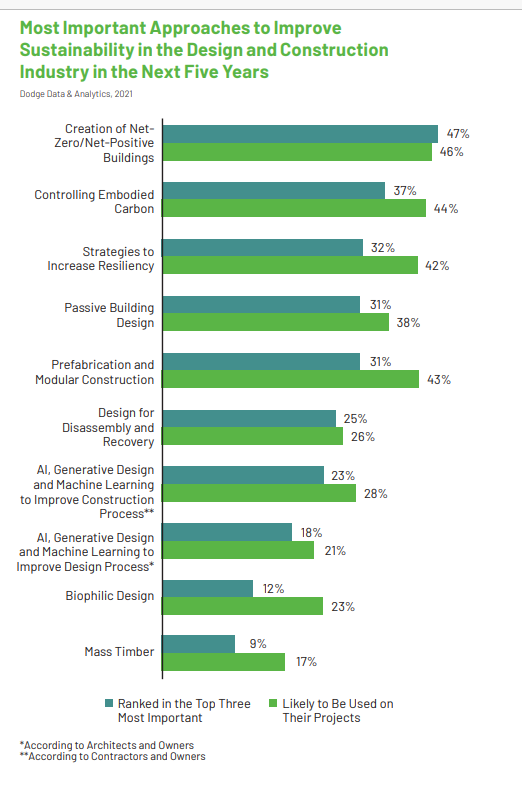By Scott Shurtleff
The outlook for future demand of green building products and services is very promising, according to data gained from an extensive survey by Dodge Data & Analytics in partnership with Carrier, Autodesk, USGBC and AIA. The 80-page report details the expected demand of green products in home, municipal and commercial structures over the next 15 years.

The report suggests that both the building performance AND the construction of the building need to be addressed with equal fervor relative to greenness. The materials themselves will pose a challenge to achieving a more green world.
The processing of these new products has an evolving solution that manufacturers are working toward in their role as partners in the overall effort of to create a more green world. The study highlights this challenge stating, “embodied carbon—emissions from the manufacture, transportation, installation, maintenance and disposal of building materials” will continue to be a ”front-end” source of carbon emissions.
Embodied carbon is an unfortunate reality that must be addressed in order to achieve net-zero. The report states that “The creation of built assets also involves some intensive CO2 emissions in the manufacturing and transportation of materials.” And the end-life disposal of those products is another important consideration.
The survey addressed this very issue, asking respondents if they are familiar with and attentive to the embodied carbon aspect of the product lines for their project. Most are familiar with the concept of embodied carbon—only 18 percent were not—but more than a third (36%) of those who are aware did not track the embodied carbons in the materials used on projects.
When asked recently what are some of the challenges to achieving the Race to Zero goal, Cristina Gamboa, CEO of World Green Building Council, said “better materials that are using environmental product declarations.” This challenge is better fought with “bolder, more ambitious regulation.” Gamboa suggests that businesses are ready for this set of regulations but, “Hopefully, we’ll see policy catch up.”

